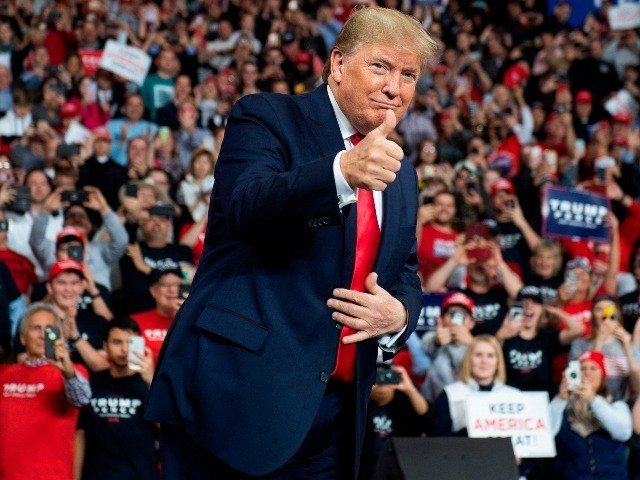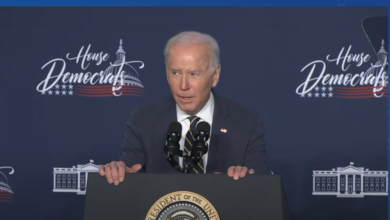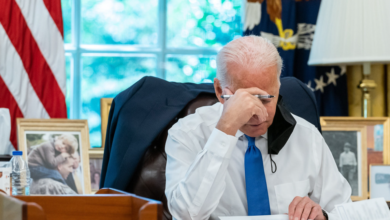Janet Yellen’s Policy Would Destroy Small US Banks While Bailing Out Chinese Depositors, Experts Say

- Treasury Secretary Janet Yellen’s recent decision to backstop all uninsured deposits at two failed banks due to their “systemic risk” to the U.S. economy not only benefits the Chinese Communist Party, but also potentially endangers smaller financial institutions, experts told the Daily Caller News Foundation.
- Silicon Valley Bank and Signature Bank both collapsed last week, resulting in a full takeover of the financial institutions by the Federal Deposit Insurance Corporation.
- “It’s absolutely atrocious that we are yet again, using taxpayer money to bail out the CCP,” E.J. Antoni, research fellow for Regional Economics at The Heritage Foundation’s Center for Data Analysis, told the Daily Caller News Foundation.
Treasury Secretary Janet Yellen’s recently announced policy to safeguard all uninsured deposits at failing banks deemed to be a “systemic risk” to the U.S. economy would destroy smaller financial institutions while simultaneously bailing out Chinese depositors, experts told the Daily Caller News Foundation.
Yellen, alongside the Federal Deposit Insurance Corporation and Federal Reserve, announced Sunday that all uninsured depositors who held accounts at the now-defunct Silicon Valley Bank (SVB) and Signature Bank would be fully covered, adding that “decisive actions” were needed to “protect the U.S. economy.” SVB was particularly popular among Chinese tech startups, as it provided easy access to U.S. investor funding, CNBC reported.
SVB’s stock collapsed last week amid numerous customer bank runs following the institution’s disclosure of a $1.8 billion net loss on asset sales on the back of high interest rates, forcing regulators to shut down the bank. Just two days later, Signature Bank, a premier lender in the crypto space, was closed by regulators due to “systemic risks,” CNBC reported.
A bailout of uninsured depositors at the collapsed banks benefits the Chinese Communist Party at taxpayers’ expense and could lead to stricter regulatory controls that smaller U.S. banks would be unable to withstand, experts told the DCNF.
“It’s absolutely atrocious that we are yet again, using taxpayer money to bail out the CCP,” E.J. Antoni, research fellow for Regional Economics at The Heritage Foundation’s Center for Data Analysis, told the DCNF. “And so now whenever the government has these knee-jerk reactions, we end up sending dollars where the American people would not like them to go.”
During COVID-19, when the government authorized sending Payment Protection Program loans and unemployment payments, it also distributed taxpayer dollars to individuals in China, Antoni told DCNF. “Anytime the government spends money, they’re by definition spending taxpayer dollars … So taxpayers are ultimately on the hook for all of this.”
In 2012, SVB launched a joint venture with Shanghai Pudong Development Bank (SPDB), resulting in the creation of SPD Silicon Valley Bank Co., CNBC reported. The venture was focused on providing services to tech startups.
Additionally, in the wake of the SVB collapse, lawmakers may seize on the chance to create a restrictive regulatory environment that “small community banks are just not going to be able to withstand,” according to Alfredo Ortiz, president and CEO of the Job Creators Network.
Unlike big banks, smaller financial institutions face greater scrutiny from regulators, Anne Balcer, Independent Community Bankers of America senior executive vice president and chief of Government Relations and Public Policy, told the DCNF.
“There’s almost a disproportionate or heightened scrutiny on the smaller institutions,” Balcer said. “Regulators keep a much tighter leash on the community banks, which is ironic,” because they are less risky than banks like SVB.
While many startups scrambled to make payroll and retrieve funds in the wake of SVB’s collapse, others benefitted from the wreckage by seeking willing financial service providers to open up lines of credit with, The New York Times reported. Brex, a financial service provider that specifically caters to startups, created an “emergency bridge line of credit” for companies fleeing the collapse, reportedly resulting in billions of dollars in deposits from thousands of companies.
Designating the banks as a “systemic risk” to the U.S. economy is “arbitrary,” Dr. Thomas Hogan, senior research faculty at the American Institute for Economic Research and former chief economist for the Senate Committee on Banking, Housing and Urban Affairs, told the DCNF.
“[A] funny thing about this is just the completely arbitrary nature of this designation,” Hogan said. “Clearly, these banks aren’t actually systemically important. This is only being done as a bailout for the uninsured depositors.”
Content created by The Daily Caller News Foundation is available without charge to any eligible news publisher that can provide a large audience. For licensing opportunities of our original content, please contact licensing@dailycallernewsfoundation.org





Bailing out “uninsured depositors” means those bigger depositors (over 250,000) which are leftist Companies investing in risky ESG or liberal tech start ups and even a joint venture between SVB and a Chinese company (SPBD). And when Yellen was asked who gets to decide what banks to bailout she basically said she and the President. It’s an atrocious abuse of power that picks winners and losers just like the DOJ arrests and prosecutes members of the political opposition and ignores law breaking Democratic operatives like ANTIFA. They always shout “Russia, Russia” but our government now effectively operates just like the KGB. It’s disgusting.
Agree. Democrat politicians have become nothing more than a bunch of lying hypocrites held up by a mainstream media too stupid to even know their job is to figure out and report the truth. They truly are trying to build their own nice little dictatorship.